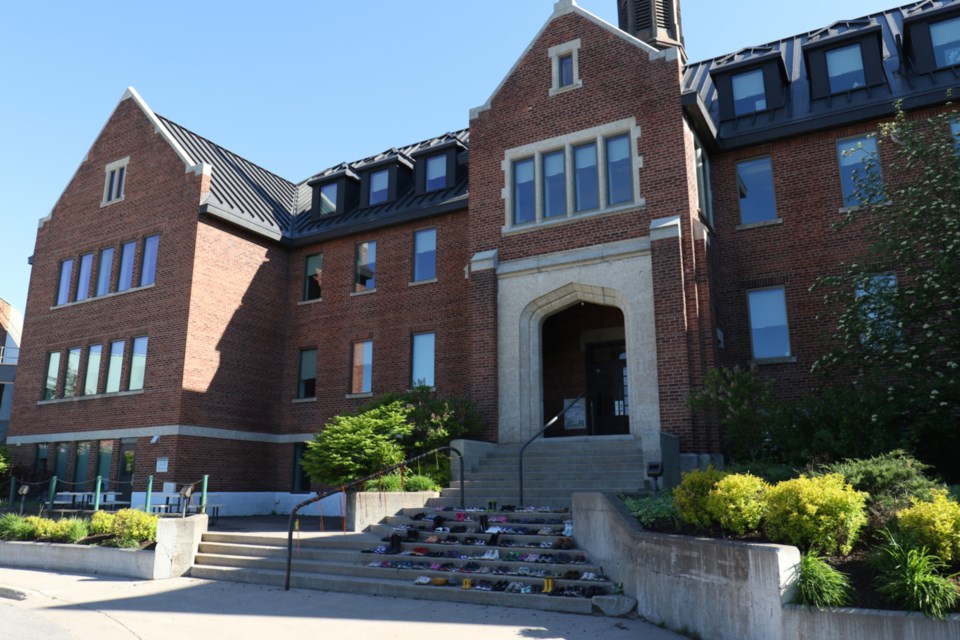The federal government says it will support an organization made up of survivors of Shingwauk and Wawanosh residential schools and their descendants in order to identify four children who died while attending the schools, after the group's initial request for access to government records was denied.
In an open letter issued last week, Children of Shingwauk Alumni Association (CSAA) President Irene Barbeau called on Indigenous Services Minister Patty Hajdu and Crown-Indigenous Relations and Northern Affairs Minister Marc Miller to grant the association unrestricted access to all records contained in government databases from 1900 to 1920 in its bid to learn the identities of the four children who died in the 1910s.
“We have pursued every available means to identify these children, but none has borne fruit. This is because the records that are best suited to this task were destroyed decades ago,” said Barbeau in the open letter. “The only way left to identify these children is with the cooperation of the departments you lead.”
CSAA initally requested access to the Indian Register — a central register containing genealogical databases on First Nations people and annuity and treaty pay lists — in its effort to identify two boys and two girls who died while attending Shingwauk and Wawanosh residential schools.
The organization received a letter from Indian Registrar John Gordon last week denying its request to comb the register for their names, citing what Barbeau described as “privacy issues.”
“The CSAA is asking for access to records that are over 100 years old. There are no privacy concerns that justify withholding access these to documents,” said Vivek Krishnamurthy, a privacy law expert with the Samuelson-Glushko Canadian Internet Policy and Public Interest Clinic at the University of Ottawa, in a CSAA news release Wednesday. “There are no privacy concerns that justify withholding access to these documents.”
The federal government says officials are following up with CSAA to “clarify a number of the components of the ask” and support the organization in finding government records, according to a joint statement from Indigenous Services Canada and Crown-Indigenous Relations and Northern Affairs Canada issued Wednesday.
“Residential schools were part of a shameful and racist colonial policy that stole Indigenous children from their communities and denied them their families, language and culture. Our government is committed to facilitating the process of document disclosure for all those who are seeking answers,” reads the statement. “In January, we signed a Memorandum of Agreement with the National Center for Truth and Reconciliation in order to ensure an efficient and secure transmission of documents while protecting and respecting the privacy of survivors.
“We recognize that the process of finding documents can be decentralized and difficult to navigate for the survivors and their communities seeking answers, and we are working to address this.”
A memorial event will be held by CSAA in July to unveil a plaque bearing the names of children who passed away at Shingwauk and Wawanosh Residential Schools. Hajdu and Miller have been invited to the event by the organization.
“The federal government must act immediately on its promise to respect reconciliation. This is an ongoing relationship based on mutual respect and understanding, not antagonism. As survivors, we deserve every opportunity to identify these four children, and these children’s lives deserve to be commemorated and memorialized respectfully by our community. This is non-negotiable,” Barbeau said in a CSAA news release Wednesday.
CSAA was founded in 1991 by survivors of the Shingwauk and Wawanosh residential schools and is a volunteer-led, grassroots organization that supports residential school survivors, their families, and communities.
